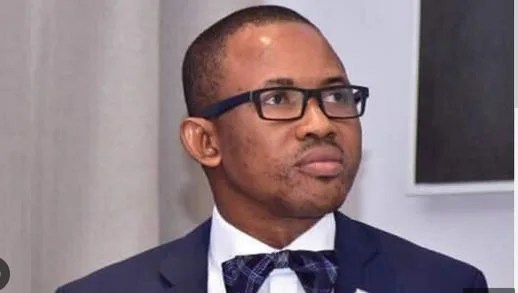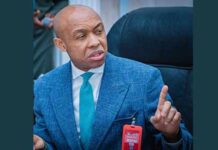This article responds to Senator Babafemi Ojudu’s recent claims implying widespread judicial corruption in Nigeria. While acknowledging the senator’s courage and personal experience, Dr. Kayode Ajulo argues that one troubling encounter should not be used to indict an entire institution
I read the recent piece by Senator Babafemi Ojudu with mixed feelings. Senator Ojudu is a big brother, a believer, and a man I deeply respect, an activist of uncommon courage, an accomplished journalist, a Senator of the Federal Republic, and a public servant who has contributed immensely to national discourse and democratic development. It is precisely because of this respect that I feel compelled to respond. My conscience will not allow me to ignore a narrative which, if left unchallenged, may become an unfair yardstick and statistics for judging the integrity of the Nigerian judiciary and the many noble men and women who serve within it.
We must also acknowledge Senator Ojudu’s courage in bringing his concerns into the open. He has never been one to shy away from difficult conversations. Throughout his career, he has confronted abuses, exposed corruption, and spoken truth to power at great personal cost. His voice has shaped public debate for decades. It is also in this same spirit of open engagement that I offer this necessary balance.
The Senator shared a troubling experience, one any reasonable person would find unsettling. I acknowledge his right to tell his story. However, a single negative encounter should never define an entire institution. Narratives, especially those presented by respected voices, must be balanced or they risk distorting reality and misleading posterity. And since Senator Ojudu did not highlight the positive encounters I know he equally enjoyed within the same justice system, I believe it is necessary to assist him by offering context, perspective, and my own experiences drawn from twenty-five years of legal practice.
I reject the dangerous insinuations that suggest all judges or judicial processes are compromised. This is as unfair as claiming that all journalists accept brown envelope
Before his public service, Senator Ojudu was known for his fearless journalism. He fought vices and confronted institutional decay when silence would have been easier. But public office often presents new realities, pressures, and perspectives. This observation is not a criticism; it is a reminder that institutions look different depending on where we stand. As we interrogate the judiciary, we must first acknowledge a truth that applies to every sector: corruption, where it exists, is not the exclusive disease of any single arm of government or profession.
I reject the dangerous insinuations that suggest all judges or judicial processes are compromised. This is as unfair as claiming that all journalists accept brown envelopes. We know such stereotypes circulate, but we also know the many journalists whose integrity is unimpeachable. Dr. Seye Kehinde of City People Magazine published my essays from my secondary school days without ever asking for a kobo, even when I became capable of paying. Not only Seye Kehinde, the names are endless, there are many of his likes who write and publish what is right because it serves the public, not because it is bought. If journalists can be upright, so can judges. It is unjust to condemn an entire institution because of the failings of a few.
Let me remind Senator Ojudu of something very important, he skipped: one of his greatest political victories was delivered, not by political power or bribery, but by the judiciary he now paints with such broad strokes.
Let me remind Senator Ojudu of something very important, he skipped: one of his greatest political victories was delivered, not by political power or bribery, but by the judiciary he now paints with such broad strokes
When his senatorial mandate was challenged by Senator Bode Ola of Ekiti Central after the Action Congress primaries, it was the judiciary that resolved the matter. The respected human rights lawyer, Mr Femi Falana, SAN, a major contributor to my practice, personally reached out to me to handle the case. I initially expressed reservations because I was then a committed chieftain of the Labour Party, serving as its Acting Legal Adviser before becoming the National Secretary. The party was the ruling party in my home state, Ondo State, and I had contested for the FCT Senate seat under its platform in Abuja.
However, Mr Falana insisted that the matter was not about politics but about trust, character, and integrity. And so, despite the political implications, we began the long but purposeful journey from the Federal High Court through the Court of Appeal to the Supreme Court.
At no point in that process was there ever a hint of bribery or corruption. We prepared meticulously, relying solely on law, facts, and logic. We were confident of victory because we knew the case was strong on its merits and that justice was on our side. The judiciary validated that confidence. We won at every stage, from the Federal High Court, to the Court of Appeal and then to the apex, the Supreme Court, without inducing anyone, without buying influence, and without compromising our values. This is the side of the judiciary Senator Ojudu benefited from, the side thousands of Nigerians experience daily.
Law, as one of my lecturers used to say, is like blind men touching an elephant. The one who touches the tusk says it feels like marble; the one who touches the leg calls it a pillar; the one who touches the body describes it as a wall. A single interaction does not represent the whole.
Another example is the case involving leaders of the Oodua People’s Congress in the build-up to the 2007 elections. The late Dr. Frederick Iyiotan Fasehun, Iba Gani Ige Adams (now the Aare Ona Kakanfo of Yorubaland), and four others were arrested in Lagos by the State Government over allegations of public disturbance. They were later released by the administration of the current President, Asiwaju Bola Ahmed Tinubu, who was then the Governor of Lagos State. The Federal Government under President Olusegun Obasanjo subsequently rearrested them, transferred them to Abuja, detained them for an extended period, and eventually charged them with treasonable felony.
If we genuinely want a better Nigeria, we must strengthen institutions, not destroy them with sweeping generalisations. Constructive criticism is necessary. Unbalanced condemnation is not
I joined the defence team led by eminent legal giants such as G.O.K. Ajayi and W.K. Shittu, now both Senior Advocates of Nigeria, alongside Oluwole Kehinde. At one point, Festus Keyamo, now also a Senior Advocate of Nigeria and the current Minister of Aviation, joined the team. As the only member of the defence team resident in Abuja, it naturally fell on me to attend court daily. I filed five separate bail applications, each time facing firm resistance from the prosecution, who repeatedly invoked so-called “orders from above” to oppose the applications and ensure continued detention. Yet we persisted, confident that the law was on our side.
Yet Hon. Justice Anwuli Chikere of the Federal High Court delivered a courageous ruling, freeing them. Despite the boast from the top that they will not be released until after the 2007 general election. That was the judiciary standing firm against executive pressure.
There is more. Under President Muhammadu Buhari’s civilian administration, known for its strong anti-corruption posture, several military officers implicated in the arms procurement scandal were arrested and had their properties seized. The central figure was a Nigerien arms dealer, Hima Aboubakar, whose properties and funds were forfeited to the Federal Government on the order of the court. When I was briefed, I discovered glaring legal issues that made the forfeiture questionable. Many warned me that the President was personally invested in the matter and that no one had ever succeeded in reversing such a forfeiture under his regime. Yet we challenged it on law, argued it on merit, and won. The forfeiture was reversed without paying a penny to anyone. That victory was not about influence, it was about the judiciary doing its duty and upholding the law.
For twenty-five years, from Magistrate Courts to the Supreme Court, I have never attempted to bribe a judge, nor has any judge ever demanded such from me. My mentors are individuals of unshakeable integrity. If the judiciary were as rotten as suggested, honest lawyers would not survive, let alone excel.
Only three years ago, a landmark case in which I represented the President of the Senate, Senator Ahmed Lawan, Speaker of the House of Representatives, Rt Hon Femi Gbajabiamila and National Assembly came before the Supreme Court. President Muhammadu Buhari and the then all-powerful Attorney General of the Federation, Abubakar Malami, SAN, CON, sought the deletion of Section 84(12) of the Electoral Act. Many confidently predicted that the Supreme Court would never rule against such an administration. Yet a full panel of seven Justices, led by Justice Musa Dattijo Muhammad, delivered a bold and principled judgment rooted firmly in law. That is not the behaviour of a compromised bench.
As for the late Senator Buruji Kashamu’s alleged boasting about pre-written judgments, we must remember he is no longer alive to respond. In all my years, I have never encountered a judge worth his office who would allow a lawyer to write a judgment for him. That boast may have been empty, bluster meant to impress or intimidate, but it should never be used to condemn an entire institution.
Yes, the judiciary, like every profession, has its bad eggs. The National Judicial Council has sanctioned and continues to sanction many. But the overwhelming majority of Nigerian judges are upright, hardworking, principled, and deeply committed to justice. These are men and women who sit late into the night, manage impossible caseloads, endure limited resources, and still deliver judgments that uphold our democracy. They deserve fairness, encouragement, and respect.
If we genuinely want a better Nigeria, we must strengthen institutions, not destroy them with sweeping generalisations. Constructive criticism is necessary. Unbalanced condemnation is not.
As we speak about the challenges in the judiciary, we must also honour the excellence within it. As we confront misconduct where it exists, we must highlight integrity where it thrives. And while we demand reforms, we must never undermine the last hope of the common man.
A nation cannot survive without a judiciary it trusts. But that trust must be built on truth, whole truth, balanced truth, responsible truth.










